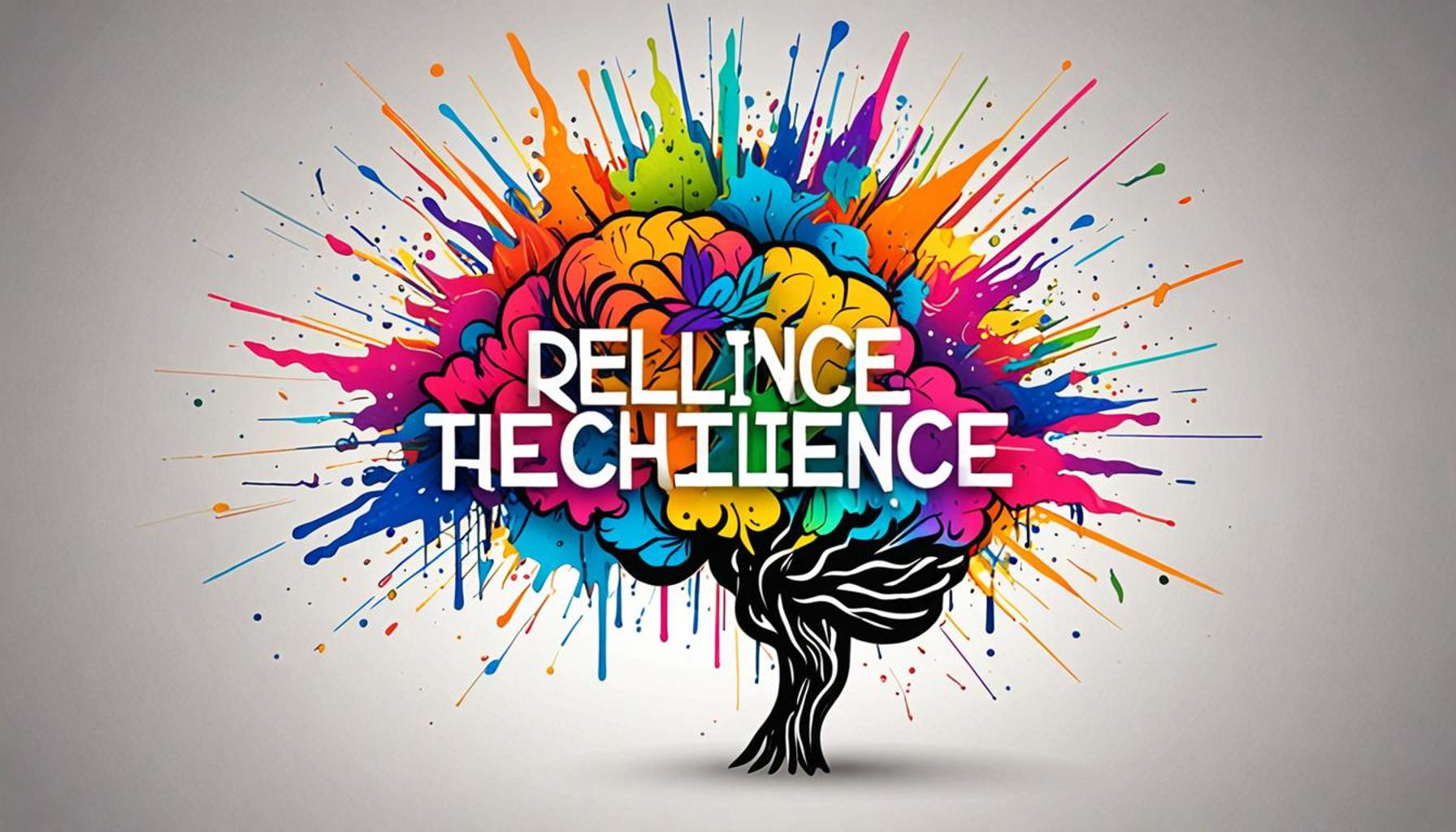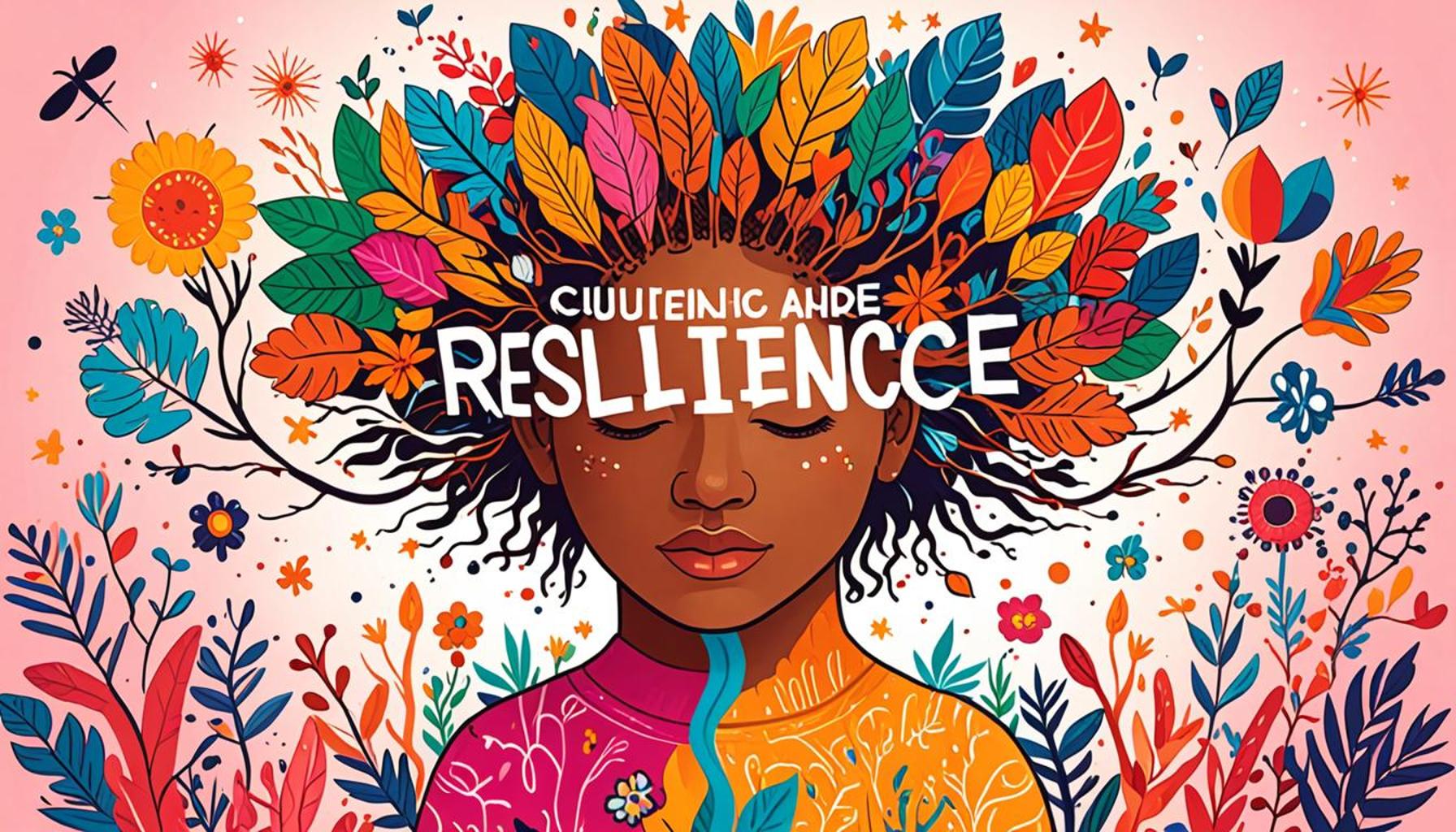Resilience Techniques to Overcome Challenges and Drive Personal Growth

Exploring the Dynamics of Resilience
In today’s fast-paced world, the ability to overcome challenges and foster personal growth is more essential than ever. Each individual encounters unique obstacles, whether they are in personal relationships, professional endeavors, or social interactions. For many in Nigeria, where complexities can be pronounced, mastering resilience techniques becomes not just beneficial but vital. Embracing resilience serves as a powerful instrument for navigating these difficulties effectively and emerging stronger.
Understanding Resilience
Resilience transcends the notion of merely bouncing back; it embodies the ability to thrive amid adversity. It involves cultivating a mindset that enables us to adapt, learn, and grow through challenges. Critical elements that contribute to resilience include:
- Self-awareness: Understanding your emotions, strengths, and triggers is fundamental. In the Nigerian context, recognizing how economic fluctuations or social pressures affect your mental state can empower individuals to take proactive steps toward personal management.
- Optimism: Maintaining a positive outlook, even in the face of adversity, fosters resilience. For example, many Nigerian entrepreneurs exemplify this optimism by innovating in challenging economic climates, creating businesses that not only survive but thrive.
- Social Support: Building and nurturing a network of supportive friends and family plays a crucial role. In many Nigerian communities, the concept of ‘Ubuntu’—where community spirit is integral—illustrates how collective support enhances individual resilience.
The Context of Nigeria
In Nigeria, resilience is particularly significant given the country’s diverse challenges ranging from economic instability to security issues. For instance, during periods of economic downturn, numerous individuals have shown remarkable creativity in developing alternative income streams, often through local entrepreneurship. This adaptability is a testament to the resilience ingrained within the Nigerian spirit.
Moreover, stories abound of communities coming together to support one another through crises. When faced with the devastating impacts of natural disasters, for instance, many Nigerians respond with unprecedented solidarity, using local resources to assist those affected. This not only aids in recovery but also strengthens communal bonds, illustrating that resilience can lead to enduring connections and collective growth.
This article will delve into practical resilience techniques that can serve as guideposts for overcoming challenges and promoting personal development. Strategies such as mindfulness practices, goal-setting, and community engagement provide pathways to fortify one’s resilience. Embrace the journey of growth and discover how these transformative strategies can enrich your life, aiding in both personal achievements and fostering a healthy community spirit.

LEARN MORE: This related article may interest you
Practical Resilience Techniques for Personal Growth
Building resilience is not a one-time effort; rather, it requires a consistent application of effective techniques that enable individuals to navigate life’s challenges. By integrating a variety of strategies into daily routines, individuals can foster a resilient mindset that supports sustained personal growth. Below are some practical techniques that can empower anyone aiming to enhance their resilience:
- Mindfulness Practices: Engaging in mindfulness activities such as meditation and deep-breathing exercises can significantly reduce stress and promote emotional clarity. For instance, many Nigerians are beginning to adopt practices inspired by traditional healing methods, which focus on mental well-being and emotional balance. Incorporating even a few minutes of mindfulness into your day can help create a buffer against external pressures.
- Goal-Setting: Establishing realistic and achievable goals can serve as a roadmap for overcoming challenges. Whether in the context of education, business, or personal endeavors, Nigerians have often shown incredible resilience through strategic planning. For example, students facing academic pressure can benefit from breaking down larger tasks into manageable steps, thus fostering a sense of accomplishment that fuels further motivation.
- Community Engagement: Participation in local community initiatives or support groups cultivates a sense of belonging. Whether it’s getting involved in neighborhood associations or volunteer organizations, these connections not only provide emotional support but also create a platform for shared resources. The vibrant spirit seen in many Nigerian communities exemplifies how collective efforts can aid each individual in surmounting personal challenges.
- Emotional Regulation: Developing the ability to control one’s emotions in times of distress is a crucial resilience technique. This includes recognizing when to seek help or express feelings constructively. Particularly in Nigeria, where cultural stigmas may sometimes surround mental health, fostering environments where individuals can speak openly about their struggles can facilitate better coping mechanisms.
- Learning from Failure: Embracing failure as a stepping stone rather than a setback is essential. Many successful entrepreneurs and leaders in Nigeria have done just this—transforming their failures into valuable lessons that inform future endeavors. By shifting the perspective on failure, individuals can cultivate a growth mindset that sees obstacles as opportunities for learning.
These techniques can collectively nurture resilience, enabling individuals to adapt and thrive amidst the complexities of life in Nigeria. Furthermore, by regularly applying these strategies, individuals not only strengthen their own capacity to deal with adversity but also contribute positively to their community. The journey of resilience is multifaceted, and as one learns to handle challenges, they invariably pave the way for personal and communal growth.
| Technique | Description |
|---|---|
| Positive Self-Talk | Encouraging oneself through challenging times increases motivation and mental clarity. |
| Mindfulness Meditation | Practicing mindfulness helps in reducing stress and enhances emotional regulation. |
| Journaling | Writing down thoughts and feelings provides clarity and can lead to problem-solving insights. |
| Goal Setting | Establishing SMART goals drives focus and fosters a sense of accomplishment. |
Resilience is often built through personal experiences, and the above techniques are pivotal tools in this journey. By engaging in positive self-talk, individuals cultivate a more optimistic perspective, which is crucial in tackling setbacks. Moreover, incorporating mindfulness meditation into daily routines allows for better handling of stressors and challenges, creating a more balanced mindset.The benefits of journaling cannot be overstated, as it allows for deep introspection and fosters self-awareness, unveiling underlying issues that may affect personal growth. Meanwhile, goal setting is essential, as it offers a tangible roadmap to navigate challenges, helping individuals maintain their trajectory toward success.Exploring these techniques can lead to profound transformations, empowering individuals to overcome even the most daunting obstacles in their personal and professional lives. Implementing these resilience strategies will inevitably unlock potential and foster continuous personal development.
SEE ALSO: Click here to read another article
Cultivating Resilience through Adaptive Mindset and Self-Compassion
In addition to the foundational techniques discussed earlier, developing an adaptive mindset and practicing self-compassion are pivotal for enhancing resilience and nurturing personal growth. These approaches help individuals not only to withstand adversity but also to emerge stronger and more enlightened.
- Adaptive Mindset: Cultivating an adaptive mindset involves embracing change and uncertainty as inherent parts of life. For instance, many young professionals in Nigeria have had to pivot their careers in response to an evolving economic landscape. By viewing challenges as opportunities for innovation, individuals can implement adaptive strategies. This means refraining from a fixed perspective and instead fostering cognitive flexibility, allowing for the ability to modify one’s thoughts and behaviors in response to new information and situations.
- Self-Compassion: Many individuals in Nigeria are often their harshest critics, especially when faced with failure or setbacks. Practicing self-compassion means treating oneself with kindness and understanding during moments of struggle. This technique can drastically reduce the emotional toll of challenging experiences. For example, a community health worker facing delays or barriers in service delivery can benefit from self-compassion by recognizing that mistakes are part of the process, ultimately leading to enhanced emotional resilience and a stronger resolve to improve and adapt.
- Positive Affirmations: Utilizing positive affirmations can help to build self-esteem and reinforce a resilient mindset. Research has shown that affirmations can lead to lower levels of stress and anxiety. In Nigerian schools, for instance, teachers are increasingly incorporating positive affirmations into classroom routines. Students who repeat affirmations about their abilities and potential not only improve their academic performance but also boost their confidence to face future challenges.
- Physical Well-Being: The connection between physical health and resilience is well-documented. Engaging in regular physical activity, maintaining a balanced diet, and ensuring adequate sleep are critical elements that support emotional health. In Nigeria, traditional forms of exercise such as dancing or group sports not only promote physical health but also foster community connections, helping individuals build social resilience while staying physically active.
- Gratitude Journaling: Another effective practice that can enhance resilience is the habit of gratitude journaling. By reflecting on daily experiences and acknowledging the positive elements, individuals can shift focus from stressors to strengths. For instance, after a long day of dealing with economic instability or personal hardships, writing down three things to be grateful for can help reframe one’s perspective. This practice has been adopted by various self-help groups in Nigeria, promoting mental well-being through mindfulness and positive reinforcement.
By incorporating an adaptive mindset, self-compassion, and other techniques into daily practices, individuals can fortify their resilience against life’s myriad challenges. This holistic approach empowers not just individual growth, but also fosters a communal spirit that uplifts those around them. As personal challenges arise, maintaining a focus on growth and adaptation can lead to transformative experiences that ultimately benefit both the individual and society at large.
SEE ALSO: Click here to read another article
Conclusion: Embracing Resilience for Personal Growth
In today’s rapidly changing world, the ability to bounce back from challenges is more essential than ever. The exploration of resilience techniques – including an adaptive mindset, self-compassion, and healthy lifestyle practices – provides valuable tools for personal growth. As we have seen, resilience is not merely about surviving difficult times; it is about thriving despite them. By viewing challenges as opportunities for development, individuals can transform setbacks into stepping stones.
In the context of Nigeria, where the socio-economic landscape can be unpredictable, adopting an optimistic outlook becomes even more vital. For instance, community initiatives that incorporate gratitude journaling or physical well-being practices provide communal support, fostering a culture of resilience. Furthermore, incorporating positive affirmations in education can empower future generations to approach life with confidence and determination.
Ultimately, nurturing resilience is a holistic process that requires intentional efforts from individuals and communities alike. As we incorporate techniques like those discussed, we not only pave our own path towards personal growth but also inspire those around us. By sharing experiences, fostering supportive networks, and cultivating a mindset of adaptability, we can create a ripple effect that strengthens our entire society. Embrace resilience as a guiding principle, and witness how these techniques can significantly enhance your life journey.


